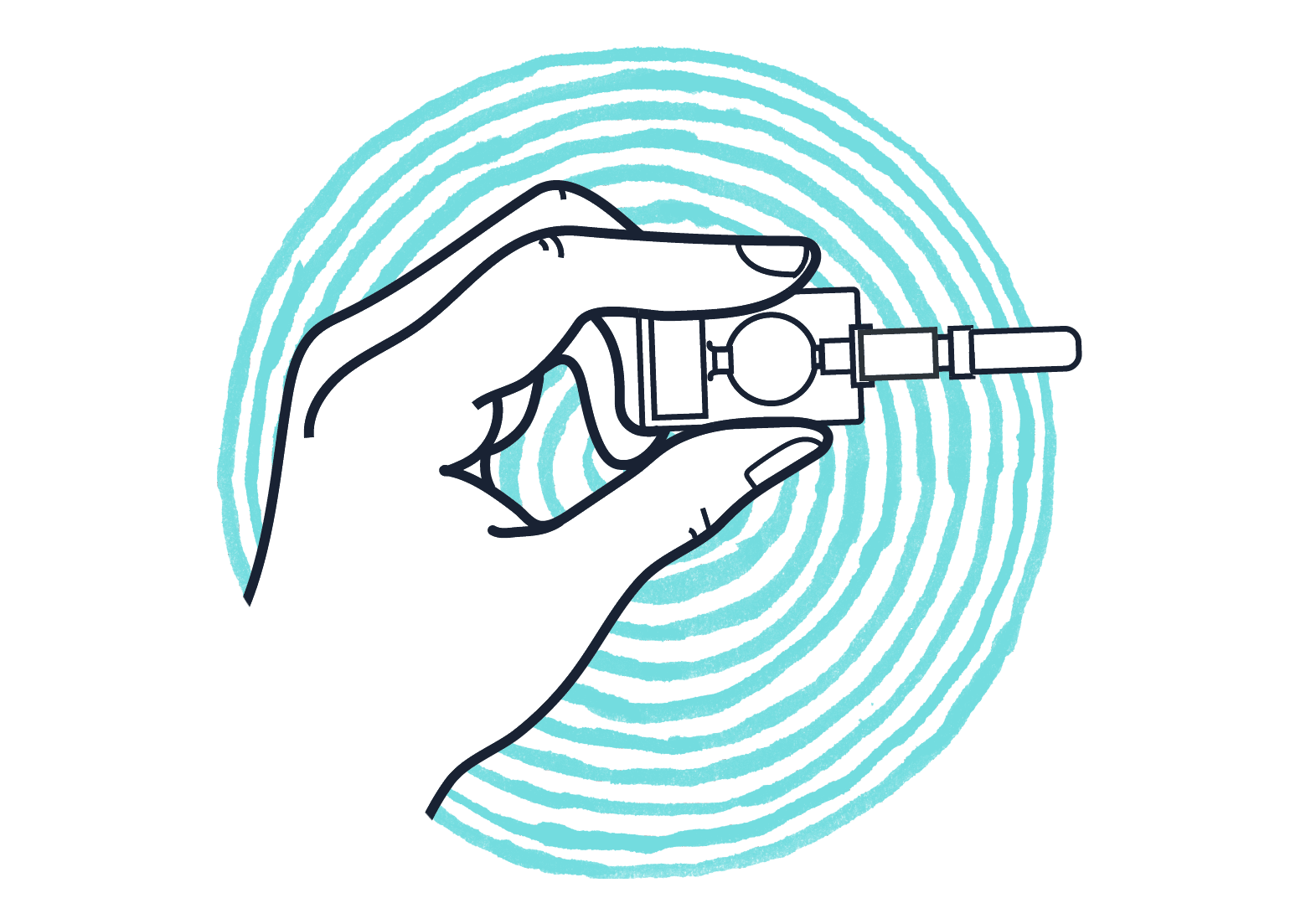Contraceptive injection

The contraceptive injection is injected 4 times a year. It contains progestogen, a copy of the natural hormone progesterone.
There’s one type that you inject yourself and another type that’s injected by a clinician. Each injection lasts 13 weeks. It will often stop your periods and may cause you to gain a little weight.
SH:24 only offers Sayana Press, which you inject yourself. We can only prescribe this to people who have used it before.
frequency: fit and forget
effectiveness: 94%
STI protection? no
periods: lighter or stop
What you need to know about the injection
It’s a good choice if you suffer from heavy periods, PMS or endometriosis, or want a method you don’t have to think about often. It’s not as good if you’re planning to become pregnant soon, as it can take a while for your fertility to return to normal after you stop using it. If you like to have a regular bleed then this is not a good method for you.
How does the injection work?
The contraceptive injection works by stopping you from releasing eggs (ovulating) so there’s no egg to be fertilised. It also thickens the mucus in the womb entrance so that sperm can’t get through, and thins the lining of the womb so a fertilised egg can’t implant and grow.
Getting started with the injection
If you use the type you can inject yourself, you’ll do the first under clinical supervision and then inject yourself after that. If you use the type that’s injected by a clinician you need to visit your clinician every 13 weeks for injections.
Health benefits and risks of using the injection
Most people can use this safely – you can use it even if you’re unable to take oestrogen. However, if you use the contraceptive injection for a long time there’s a chance it can cause reduced bone density.
Side effects of the injection
The main advantage of the contraceptive injection is that it reduces bleeding. However, bleeding can be irregular and there is a possibility that it can cause a small weight gain.
Do you need help with something else?
Find sexual health services near you
Get sexual health advice from the experts






